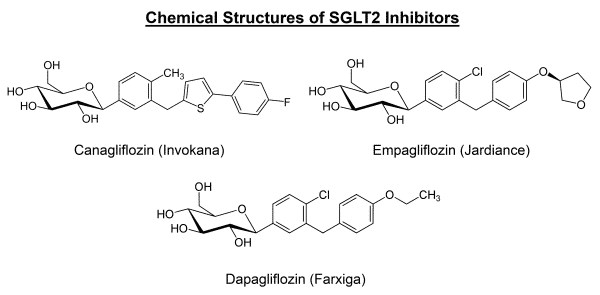Invokana, a “new generation” treatment for type 2 diabetes, has already been prescribed to millions of Americans, even though it was just approved in 2013. Heavily promoted as a breakthrough in diabetes medicine and showered with positive hype by the media, Invokana was readily adopted by doctors and patients seeking new approaches to blood sugar management.
Yet, despite its popularity, the drug has come under intense scrutiny. The FDA has issued multiple Invokana safety warnings in 2015 alone. Evidence from patient reports and clinical trials suggest that Invokana use may result in serious health problems, including:
Patients who have fallen victim to these side effects from Invokana or from related drugs are now looking to fight back against manufacturers through legal action. Numerous New York product liability law firms have filed lawsuits based upon allegations of defective drug design and negligent side effect labeling are currently under investigation, and the numbers are expected to rise sharply, with so many patients already exposed to the possible risks.
Invokana is the brand name for a tablet medication manufactured by Janssen Pharmaceuticals, a subsidiary of healthcare giant Johnson & Johnson. Developed to help maintain safe levels of blood glucose, it was approved by the FDA for treatment of type 2 diabetes in March 2013 and is offered in low dose (100 mg) and high dose (300 mg) forms.
The active ingredient in Invokana, canagliflozin, hails from a new class of drug molecules called SGLT2 (sodium-glucose co-transporter2) inhibitors. These molecules were designed to lower blood sugar in a drastically different way from all previous diabetes drugs, which generally work by affecting how the body uses or produces insulin.
In contrast, SGLT2 inhibitors act by blocking a vital kidney function – the reabsorption of glucose, the body’s main energy source. Normally, the kidneys filter the blood for valuable substances (like glucose) and allow them to return to the bloodstream while discarding waste products.
But in the presence of an SGLT2 inhibitor, the kidneys instead designate glucose as waste to be removed from the body via the urine, resulting in decreased blood sugar levels.
Though Invokana was the first diabetes medicine containing an SGLT2 inhibitor to be sold in the U.S., others followed, some of which had been previously approved in other countries:
The healthcare community highly anticipated Invokana’s release, expecting that its insulin-independent mechanism could prove effective for patients who found limited success with existing medications, or that it could possibly allow for combination treatment with insulin therapy.
But those who had championed Invokana were quickly confronted with alarming evidence of serious risks when the FDA issued multiple safety alerts.
In May 2015, only 2 years after Invokana’s debut, the FDA warned patients that using medications containing SGLT2 inhibitors canagliflozin, dapagliflozin, or empagliflozin could lead to ketoacidosis, a condition in which the body overproduces acids in the blood.
With no mention of ketoacidosis in Invokana’s Prescribing Information, the FDA saw fit to call attention to the potential risks. The agency emphasized that ketoacidosis can prove severe enough to require emergency care, and urged doctors and patients to carefully watch for ketoacidosis symptoms:
This urgent warning originated from 20 FDA reports of patients hospitalized for ketoacidosis after taking SGLT2 inhibitors. Although ketoacidosis is common in patients with type 1 diabetes, the condition is exceedingly rare in those with type 2 diabetes. This is why the wave of ketoacidosis cases among patients taking type 2 diabetes medicines like Invokana struck the FDA as particularly unsettling.
You can learn more about this FDA safety communication and its implications for Invokana on our Ketoacidosis page.
In September 2015, the FDA issued another public warning, this time specifically for Invokana and the combination pill Invokamet, and called for an update to product labeling.
Though Invokana’s labeling had always included warnings about increased bone fracture risk, results from several recent clinical trials prompted the FDA to strengthen these warnings and to add details about potential adverse effects on bone density.
In the press release for this label change, Invokana and Invokamet patients were told:
Even before Invokana’s release, doctors found cause for concern in its potential side effects, particularly those affecting cardiovascular health and renal (kidney-related) function.
In January 2013, the FDA assembled a panel of medical professionals from the Endocrinologic and Metabolic Drugs Advisory Committee for a meeting regarding the approval status of Invokana. The panel was presented with current research on the drug and then asked to vote.
8 out of 15 panel members spoke out on “lingering concerns” they had about the cardiovascular safety of Invokana after reviewing the provided research. They were especially worried about a clinical trial in which patients exhibited an “early risk signal”—an increased risk of blood clots, heart attack, and stroke within the first 30 days of taking Invokana.
Though Invokana ultimately won approval, with 10 members voting in favor, 5 of the members considered its possible risks serious enough to vote against its release. Furthermore, as many members still harbored concerns and found the lack of long-term studies disconcerting, the FDA enforced strict conditions on Invokana, requiring Janssen Pharmaceuticals to conduct 5 extensive post-market studies.
Some panel members who had voted against Invokana’s approval did so due to fears about Invokana’s possible effects on kidney function. And now, a nonprofit consumer rights organization recently uncovered a high ratio of kidney ailments in Invokana patient reports to the FDA.
The Institute for Safe Medication Practices (ISMP) carefully monitors FDA reports for potentially dangerous drugs, and noticed that adverse Invokana reports frequently mentioned kidney problems. Some patients experienced significant kidney damage or even kidney failure.
In discussing these troubling findings, the ISMP remarked that such adverse effects “might be expected from an agent that blocks a normal function of the kidney.” The organization also observed that Invokana labeling does not mention the possibility of developing kidney damage—it only warns patients with existing kidney problems to avoid taking the medication.
With Invokana under fire for so many possible health risks, it is no surprise that many patients have stepped forward to seek justice against Janssen Pharmaceuticals. Numerous lawsuits have been filed in the U.S. and in Canada alleging that manufacturers failed to warn patients of the possible side effects of the drug, and that the drug caused life-threatening health complications, most especially the development of ketoacidosis.
The first Invokana claim ever filed was initiated by Rosalba Joudry from Ontario, Canada. In her suit, a class action against Janssen, Inc., Joudry describes experiencing kidney failure after only 8 months on an Invokana prescription.
She blames the manufacturer for her suffering, alleging that Invokana labeling was insufficient, as she would have stopped taking Invokana sooner if she’d known that kidney damage was a possibility. Kidney failure does not always exhibit readily apparent symptoms, and Joudry alleges that she had no inkling that her kidneys were failing until she happened upon an Invokana-related commercial and asked her doctor to run tests.
If you or a family member experienced harmful side effects from Invokana or a related drug, you may be entitled to considerable compensation. The New York personal injury lawyers at Banville Law have successfully handled cases of product liability, medical malpractice, and wrongful death and the firm is currently assisting patients who have suffered negative side effects after using Invokana. Schedule a free case evaluation with the experienced Invokana lawyers at Banville Law as soon as possible to find out if you have a viable claim.
If you’re eligible to file, we will represent your case on a contingency-fee-basis, which means that absolutely no payment is due unless we secure a settlement or court award in your favor.
Find out helpful information on: Background and Controversy on the Power Morcellator


